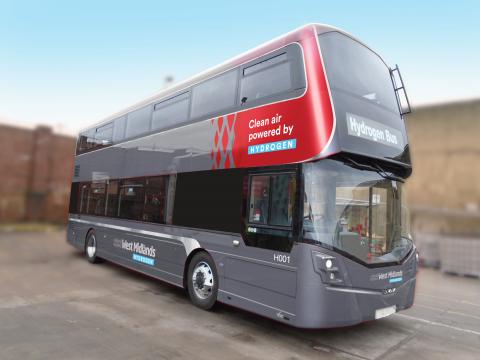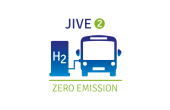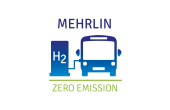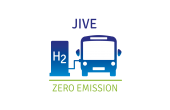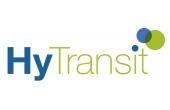Birmingham City Council has purchased 20 new hydrogen double-decker buses as part of their Clean Air Hydrogen Bus Pilot.
The Clean Air Hydrogen Bus Pilot seeks to “boost” the market for hydrogen as a viable zero-emission fuel by acquiring and deploying 20 hydrogen buses in Birmingham. The buses, which are manufactured by Wrightbus and are the world’s first zero-emission hydrogen fuel cell double-decker buses, will be introduced with National Express West Midlands from April 2021.
The pilot is intended to be the catalyst for the next generation of hydrogen buses, the production of hydrogen and the development of the refuelling infrastructure. The Council has also collaborated with ITM, who will produce and dispense the hydrogen fuel from the new refuelling centre at the Tyseley Energy Park.
The hydrogen buses consume four times less fuel compared to standard diesel buses, covering 300 miles on a single tank and with the ability to refuel in 7-10 minutes. They emit water vapour, which means no carbon dioxide or other harmful gases are being pumped into the air.
Hailed as another solution to address the city’s poor air quality and a critical step towards achieving the Council’s zero net carbon goal, each bus is expected to save up to 79.3 tonnes of carbon dioxide emissions per year.
The buses are being manufactured by Wrightbus, who are also supplying vehicles to Aberdeen and London as a first in the deployment of hydrogen fuel cell double-decker buses in the UK and within Europe. The buses will be operated in Birmingham by National Express.
Birmingham City Council’s Cabinet Member for Transport and Environment, Councillor Waseem Zaffar said: “I’m delighted that we will be introducing hydrogen buses to Birmingham next year. Fuel cell buses offer a practical solution for cities to decarbonise public transport and immediately improve air quality. It has taken us two years to get to a point where we can ensure commercial viability for this type of fuel cell technology and is great news for our city and the rest of the region. This pilot is a significant step towards our net-zero carbon target and will provide Birmingham with a leading role in informing debate on supportive policies for zero-emission public transport at a local and national level.”
Jo Bamford, Owner and Chairman of Wrightbus, said: “We’re incredibly proud that these buses hold the title of being the world’s first zero-emission hydrogen fuel-cell double-deckers, and we’re delighted that Birmingham City Council has recognised the benefits that this technology can bring to the city. We have an opportunity with hydrogen-powered transport to make a huge difference to air quality. But this fleet of buses represents much more than Birmingham striving to reach a clean air, zero-carbon future. It represents the start of what could be a world-leading UK hydrogen economy which will bring with it multi-million-pound investments and tens of thousands of jobs.”
Tom Stables, National Express UK Managing Director said: “National Express West Midlands announced earlier this year that our entire bus fleet will be zero-emission by 2030 and we are already operating 29 fully electric buses in Birmingham, Solihull and Coventry. By operating hydrogen double-deckers in service in Birmingham, we will learn which routes lend themselves to hydrogen buses and what the mix of vehicles in our fleet should be going forward. These new buses will be fitted out in our top-spec Platinum range, so customers will also benefit from free Wi-Fi, USB chargers and extra legroom. Because there is no engine, they are super-quiet. And of course, all that comes out of the exhaust is water vapour.”
The development will see the start of fuel cell technology supply chains within the region and will help to support a brand-new service and maintenance apprenticeship programme.
It has been funded through OLEV (Office for Low Emission Vehicles), GBSLEP (Greater Birmingham & Solihull Local Enterprise Partnership), Birmingham City Council and JIVE project funding from the FCH JU (European Funding from the Fuel Cell Hydrogen Joint Undertaking) under grant agreement No 735582. The FCH JU receives support from the European Union’s Horizon 2020 research and innovation programme, Hydrogen Europe, and Hydrogen Europe Research.
Once launched, the Clean Air Hydrogen Bus Pilot will be monitored and reviewed to analyse and ensure the ongoing commercial and operational viability of hydrogen buses, to enable a continued roll out of hydrogen fuel cell technology within bus fleets, as part of the city’s commitment to the environment and cleaner air.
Source: Birmingham City Council.

